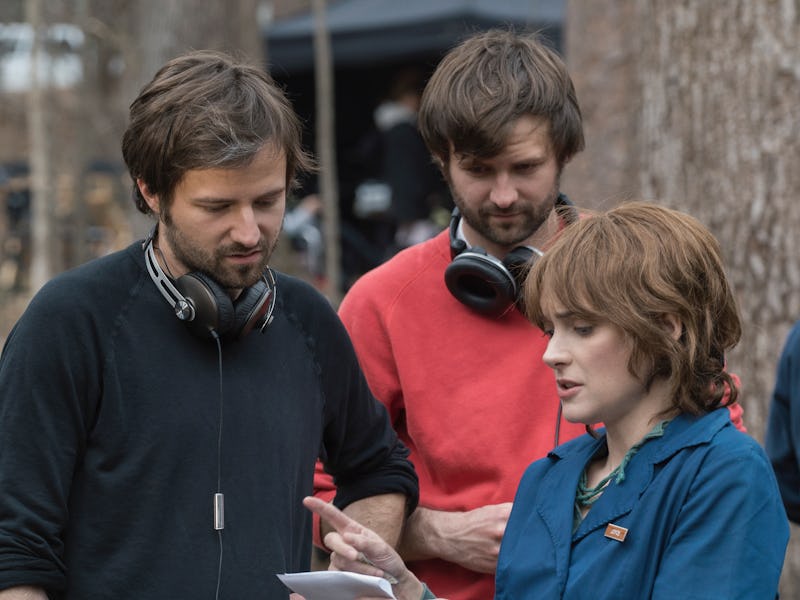Dear Netflix, Don't Give 'Stranger Things' a Season 2
The first season of the streaming service's supernatural thriller series is perfect as is, so why ruin a good thing?

This article contains spoilers.
The disappearance of Will Byers is the primary focus of Season 1 of Netflix’s new show Stranger Things, written by co-creators Ross and Matt Duffer. Despite all the multi-faceted characters who populate the sleepy fictional midwestern town of Hawkins, Indiana; despite the secret government experiments that go on nearby, causing an adolescent test subject named Eleven to escape after a telekinetic trial rips a hole in the fabric of time and space, creating a portal to another dimension; despite local boys Mike (Finn Wolfhard), Lucas (Caleb McLaughlin), and Dustin (Gaten Matarazzo) finding and befriending this runaway girl to help them find their lost friend, the story really boils down to Will. When Will’s mother Joyce (Winona Ryder) and ne’er-do-well police chief Hopper (David Harbour) venture into another dimension to bring Will back safely, it was a perfectly fitting ending to the supernatural plotline. Simply put, Stranger Things doesn’t need a second season.
With the wide-ranging tapestry of characters in Hawkins all pulled together into the plot to find Will, it makes sense that the series creators could just as easily hone in on another supernatural occurrence for the chapter, this time aiming the narrative at someone else. Moreover, the potential for Season 2 of Stranger Things doesn’t have to adhere to the regular ratings-based scale used for network or cable TV shows. Netflix has enough disposable cash to do whatever the company wants, so it’s just a matter of the show earning its continuation.
Plenty of narrative threads are left open at the end of Season 1. What happened to Eleven after she sacrificed herself and used her powers to destroy the Demogorgon? After he cuts a deal with the government, does Hopper really know where El is, or is he just guilty and leaving Eggos and treats in the woods hoping to contact her? Are Mike, Dustin, and Lucas going to be able to live normal lives after fighting a real-life Dungeons & Dragons monster? Will Eleven be reunited with her supposed mother, Terry Ives? And, most importantly, what is going to happen to that slug creature that Will coughed up in the bathroom before the first season’s closing shot?
These are all questions that could have answers, but don’t need to have answers to enjoy the show. The Duffer Brothers managed to fit their eight-episode first season snuggly in that sweet spot of being ambiguous enough to want more but entertaining enough to feel a sense of closure. The show even acknowledges that by bookending the first and ninth episodes with mirroring scenes of the lead characters playing Dungeons & Dragons.
But it’s the show’s perfect ensemble and the opportunities Netflix allows that might force a second season. The Duffer Brothers spoke to Variety about their plans beyond the first season, telling them, By the end of the show [the characters] don’t know or understand everything. That is purposeful.” But why should they? It’s far too often that new and exciting movies and TV shows are so opportunistic to keep going that they reek of cliffhangers or obvious lead-ins, which isn’t anything new.
Filmmakers Matt and Ross Duffer directing actorCaleb McLaughlin on the set of 'Stranger Things.'
The 1980s’-era movies, shows, and books that heavily influenced Stranger Things often ended with biting endings that lead into a potential sequel, but the good ones leave it vague enough to have a satisfying ending while leaving room for the audience to not feel cheated.
Something like The Twilight Zone is the reigning king of this kind of conclusion that re-contextualizes what came before it. Even the endings of the films of John Carpenter, another huge influence on Stranger Things, intentionally leave things open for debate without necessarily needing to find out what happens after the picture cuts to the end credits. Do we really need to find out whether Kurt Russell and Keith David’s characters make it out of their ruined Antarctic research station alive and escape the shape-shifting alien? Not really. Did we really need to find out how Michael Myers survived at the end of Halloween? No, because his ghostly disappearance reinforced his unnatural boogeyman role. Carpenter has only made one sequel, the universally reviled Escape from LA, so maybe the Duffers should take heed.
In that same Variety interview, Ross Duffer explained their initially larger plan before whittling the show down for the first season. “We have a 30-page document that is pretty intricate in terms of what it all means, and where this monster actually came from, and why aren’t there more monsters — we have all this stuff that we just didn’t have time for, or we didn’t feel like we needed to get into in season one,” he said before continuing: “If there was going to be a season two, we would reveal more of that 30 page document.
Stranger Things is a good show precisely because it doesn’t require a specific explanation. This supernatural occurrence happened to the people of the small town of Hawkins and it changed the town irrevocably, but made them all closer because of it. To continue to reveal more would unravel the sublime mysteries the show has to offer. A second season would be the strangest thing of all.